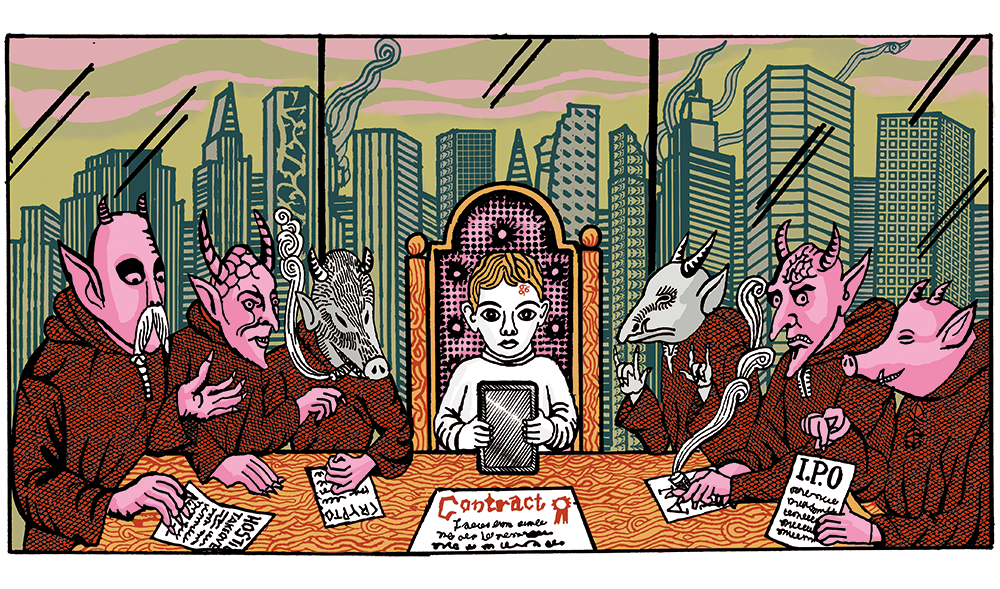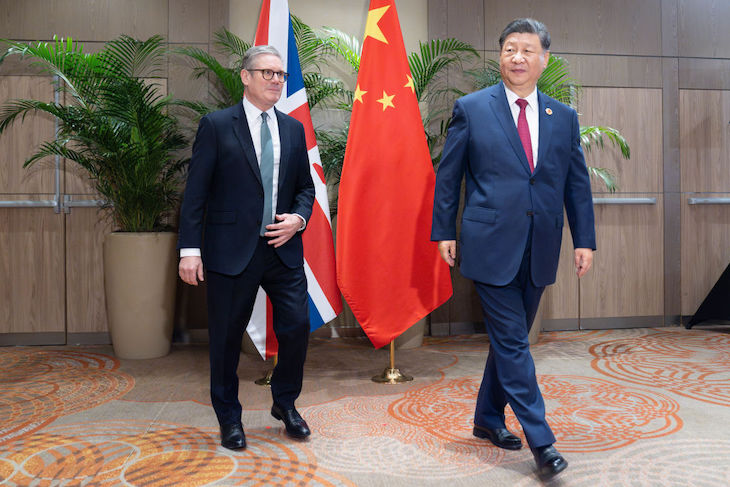The pathology of politics
Researchers from Imperial College London this week released an analysis of the health of voters in the UK. In a publication associated with British Medical Journal, the experts claimed to have found that people who vote for Reform are disproportionately sick.
I am sure that the researchers in question could not possibly have enjoyed coming to their conclusions. But they reported that the conditions Reform voters are most likely to suffer from include obesity, chronic obstructive pulmonary disease and epilepsy.
The scientists did not go so far as to claim that voting Reform makes you epileptic. As every smart-aleck first-year at Imperial could tell you, correlation does not imply causation. But they did claim to have found that those in Reform-voting areas were unusually likely to suffer from the aforementioned conditions plus arthritis, dementia, depression and learning disabilities.
The researchers justified their findings by pointing out that it’s poorer and older parts of the country which are more likely to vote Reform. But I cannot help thinking that they have missed a number of other fruitful areas of research. Perhaps I can suggest a few?
For instance, there are certain places, particularly in the north of England, where a disproportionately high number of people have been born with severe genetic disorders and other birth defects. Frequently these are the result of a marriage between first or second cousins. This would seem to me to be a very interesting area to study.
Surely after digging into the possible causes of these medical problems the researchers could go on to confirm whether or not areas with a high number of birth defects also have a disproportionate number of Labour voters? People might wonder what the value of such research would be. But perhaps it could assist couples considering entering into a consanguineous marriage if they knew that as well as doubling their risk of producing a child with a rare genetic disorder they are also, no doubt, doubling their likelihood of voting Labour, and likely tripling their chances of voting for whatever Jeremy Corbyn’s new party is called.
I suppose such a study might cause more controversy than the research just published. After all, the easiest group in society to pathologise are older white voters – especially if they are poor. These people can already be called ‘racist scum’ and ‘gammons’. So it is no special leap to suggest this demographic is also epileptic and demented.
Still, if we are in the season of diagnosing people based on their political beliefs, perhaps I could throw a few diagnoses of my own out there. It has long seemed to me that we should attempt to diagnose the sort of condition that leads people to head out on to the streets in fancy dress week after week to scream and holler at their fellow citizens.
Last Saturday there was an especially interesting specimen on one of the ‘Free Palestine’ marches in London. A bespectacled, blond, gangly student in a keffiyeh and a bomber jacket bounced about with a microphone in front of a crowd. He informed the gathering that they should be inspired by the ‘steadfast and noble resistance in Palestine and in Gaza’. He then offered them a chant that ‘we’ve been workshopping in Oxford’. ‘Maybe you guys want to join in,’ he suggested as he bounced around. The chant (offered on the day the ceasefire in the Middle East began) was ‘Gaza, Gaza make us proud, put the Zios in the ground’.
The youth in question turned out to be one Samuel Williams, originally from Tunbridge Wells. His reference to workshopping his chant in Oxford (something street mobs always look for in their chants) turns out to originate from the fact that Williams is currently studying PPE at Balliol College.
It is not for me to give a full diagnosis of a patient I have only studied in a video, but it does seem to me that this young Oxonian’s performance lends credence to my general analysis of his type. Which is that Master Williams and his ilk are disproportionately likely to suffer from feelings of grandiosity, narcissistic personality disorder, gender dysphoria and bouts of St Vitus’s dance.
In fact, street protest movements in general throw up a fascinating range of pathologies that deserve far more rigorous study. For example, in the United States there are intermittent protests against Republican policies on abortion. For some reason the women (they are almost always women) who attend these protests like dressing as characters from The Handmaid’s Tale – never the lower-status women from Margaret Atwood’s novel, only ever the red-tunic-ed ones from the classier end of the dystopian social spectrum. In their nun-like habits, these women chant endlessly about how conservative lawmakers should keep out of their vaginas. I use this language only because the women do so themselves. Yet to date there is little evidence that Republican lawmakers want to go anywhere near these protestors’ vaginas.
Nonetheless, these women parade around Washington D.C., congregate around burly police and army men and pretend laws which are meant to protect the unborn child are in fact intended so that high-status, right-wing men will be allowed to tie these women down and impregnate them against their will. Is it too much to suggest the protestors are suffering several co-morbidities? Such as a deranging level of sexual frustration? I wonder.
Finally, what are we to say of the green activists who have decided that the best way to save the planet is to ejaculate tins of paint on to priceless canvases? Or to parade around our cities with chalk-white face-paint while dressed (once again) in clerical robes? What are we to make of these people who spent years engaging in cult-style worship of an autistic child-goddess?
Some people will react to Imperial’s Reform research with calls to shut it down. Personally I should like a lot more such research. My only request is that the scientists cast their areas of interest wider, and develop a strong backbone for the criticisms that will doubtless next time come their way.



















